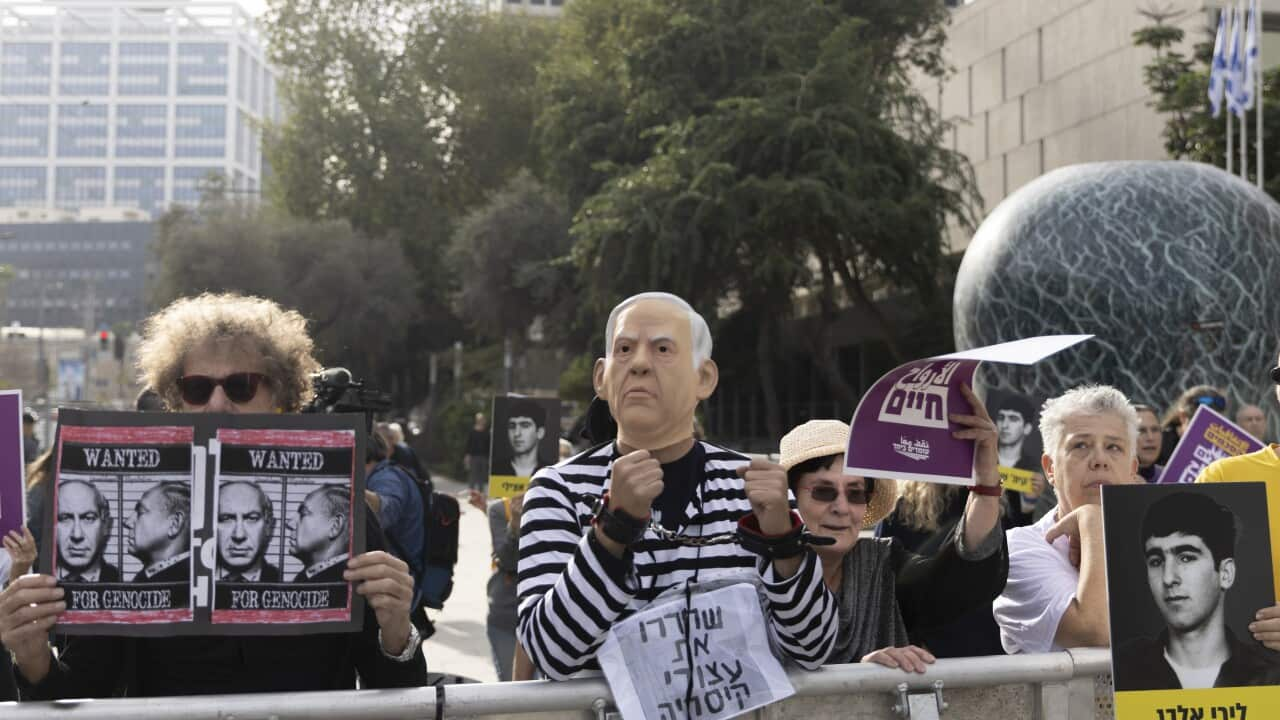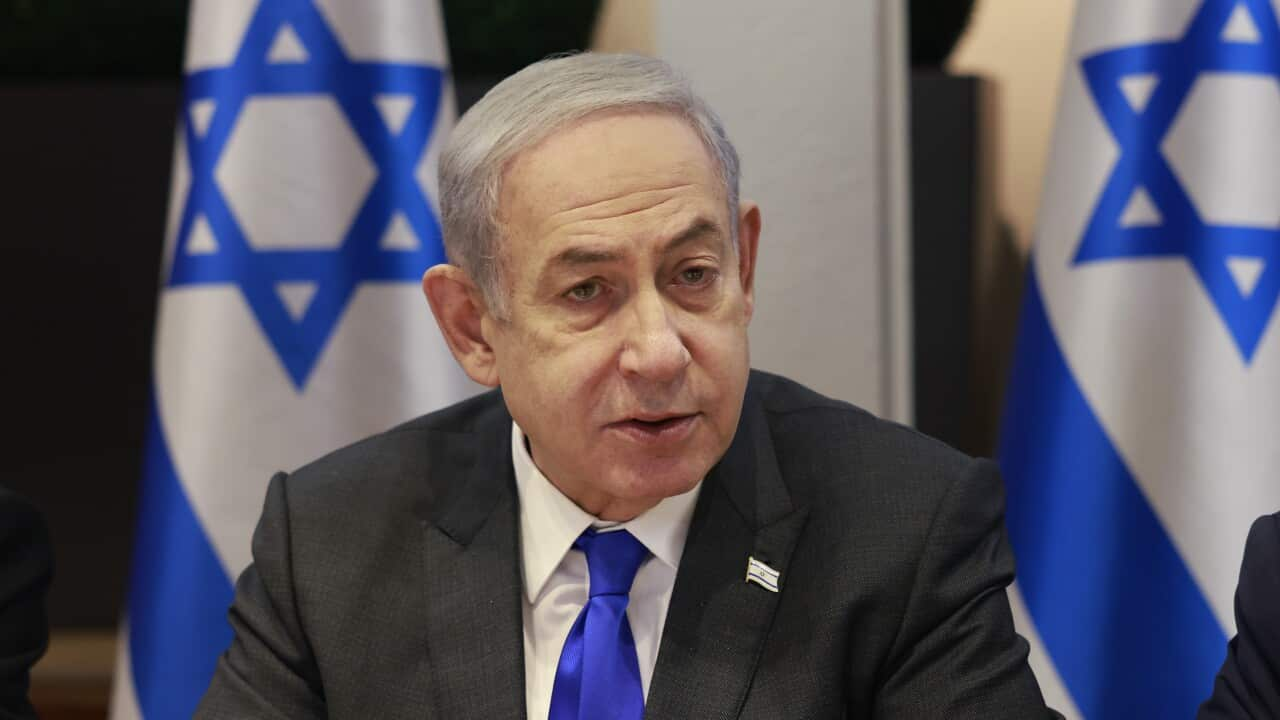Key Points
- Benjamin Netanyahu has faced court over charges of bribery, fraud and breach of public trust.
- The Israeli prime minister has dismissed the charges, calling them "ridiculous" and attacking the country's media.
- The trial, which has been delayed many times since it began in May 2020, is scheduled to last for months.
Israeli media called it a "historic day" as Israeli Prime Minister Benjamin Netanyahu faced court over charges of bribery, fraud and breach of public trust in three separate cases while running a country at war.
But Netanyahu rejected the charges, saying: "There's no corruption, no fraud. It is just ridiculous."
He also criticised the media during almost a full day of testimony, saying most of the Israeli public was right-wing, but the media was "98 per cent on the other side".
The trial has already heard from various witnesses, including former close aides of Netanyahu who testified against him.
Asked how much the charges bothered him, he said: "If I tell you it's a drop in the ocean, that would be an exaggeration."
"It has been eight years that I have waited for this day, eight years of wanting to present the truth, eight years waiting to completely demolish these absurd and baseless accusations against me," he said, labelling the cases a "relentless witch hunt".
Outside the court, his supporters chanted "Netanyahu, the people support you", while protesters chanted "Bibi to prison".

Israeli Prime Minister Benjamin Netanyahu faced court over charges of bribery, fraud and breach of public trust in three separate cases. Source: AP
What is Netanyahu's corruption trial about?
The trial, which has been delayed many times since it began in May 2020, is scheduled to last for months, with an appeals process that could further prolong matters.
In the first case, Netanyahu and his wife, Sara, are accused of accepting more than $260,000 worth of luxury goods such as cigars, jewellery and champagne from billionaires in exchange for political favours.
The other two cases allege that Netanyahu tried to negotiate more favourable coverage in two Israeli media outlets.
One involves alleged attempts by Netanyahu to reach a deal with Arnon Mozes, publisher of the popular Israeli daily Yedioth Ahronoth, for better coverage by agreeing to weaken the status of a rival daily newspaper.
The other alleges Netanyahu received favourable coverage on the popular news website Walla, owned by his close friend Shaul Elovitch, in exchange for smoothing the way for a telecoms merger sought by Elovitch.
Since returning to power in late 2022, Netanyahu's coalition government has clashed with the country's judiciary and law enforcement officials and sparked mass protests by trying to advance legislation that would weaken the courts.
Netanyahu's critics insist the legal cases will finally serve justice to a highly corrupt politician who will do anything to stay in power.
They also accuse him of intentionally prolonging the 14-month conflicts in Gaza and Lebanon to evade justice.
'Important milestone'
Yohanan Plesner, president of The Israel Democracy Institute, said the lengthy and divisive trial had now reached "an important milestone".
Netanyahu, he said, not only faced a conflict of interest being both prime minister and a criminal defendant, but the trial was "putting him in direct confrontation with important institutions in the state, especially the justice ministry".
The prosecution has argued that it is in the public interest for the trial to conclude as quickly as possible, and the court has denied all such petitions, although it has agreed to begin trial days slightly later and occasionally reduce the hearings from three to two days a week due to the prime minister's work.



